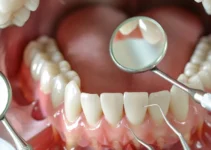Vitamin D plays a pivotal role in maintaining oral health and preventing dental diseases. This essential nutrient helps in the absorption of calcium and phosphate, minerals crucial for maintaining strong teeth and healthy gums. Insufficient levels of vitamin D can lead to dental issues such as tooth decay, gum disease, and even more severe conditions like periodontitis. Additionally, vitamin D possesses anti-inflammatory properties that can reduce the risk of inflammation-related oral diseases. By understanding the connection between vitamin D and oral health, individuals can take proactive steps towards improving their dental care regimen.
Introduction to Vitamin D and Oral Health
Vitamin D, often termed the “sunshine vitamin,” has garnered attention not only for its role in bone health but also for its significance in oral health. Recent research has highlighted how vital this nutrient is for maintaining optimal dental health, influencing the strength and integrity of teeth and gums. Understanding the correlation between vitamin D and oral health can lead to better preventive measures against dental issues.
The relationship between vitamin D and oral health is multifaceted. Deficiencies in vitamin D have been linked to an increased risk of periodontal disease, a condition that affects the gums and supporting structures of the teeth. Furthermore, vitamin D plays a crucial role in the absorption of calcium, an essential mineral for dental health. Without adequate levels of this vitamin, our teeth and bones can become brittle and more susceptible to decay and fractures.
What is Vitamin D?
Vitamin D is a fat-soluble vitamin that is crucial for maintaining several functions in the body. It is unique because our bodies can synthesize it when the skin is exposed to sunlight. This vitamin exists in two primary forms: vitamin D2 (ergocalciferol) and vitamin D3 (cholecalciferol). Both forms are converted into their active state in the liver and kidneys, allowing them to perform their essential functions.
Vitamin D acts more like a hormone than a traditional vitamin. It influences over 200 genes and various tissues within the body. Importantly, it plays a significant role in mineral metabolism and bone health, impacting how calcium and phosphorus are absorbed and utilized in the body. Understanding what vitamin D is and how it functions can help in recognizing its importance not just for general health but for oral health as well.
Sources of Vitamin D
The primary source of vitamin D is through sun exposure. When ultraviolet B (UVB) rays from the sun hit the skin, it triggers the synthesis of vitamin D3. However, factors such as geographic location, season, time of day, skin pigmentation, and sunscreen use can influence the amount of vitamin D produced in the skin.
Dietary sources of vitamin D include:
- Fatty fish like salmon, mackerel, and sardines
- Fish liver oils
- Fortified foods such as milk, orange juice, and cereals
- Egg yolks
- Cheese
Supplementation is another way to ensure adequate intake, especially for individuals who might not get enough sun exposure or consume enough vitamin D-rich foods. It is essential to maintain optimal levels to support overall health, including oral health.
Vitamin D and Its Role in the Body
Vitamin D’s primary function is to facilitate the absorption of calcium and phosphorus from the gastrointestinal tract, which are crucial for building and maintaining strong bones and teeth. Without sufficient vitamin D, the body cannot form enough of the hormone calcitriol, resulting in insufficient calcium absorption from the diet. This leads to the release of calcium from bones, weakening the structure and increasing the risk of fractures and dental issues.
Moreover, vitamin D is essential for modulating the immune system. It enhances the pathogen-fighting effects of monocytes and macrophages — white blood cells that are critical components of your immune defense — and decreases inflammation. This immune support is crucial in preventing and managing periodontal disease, a chronic inflammatory condition driven by bacterial plaque and modulated by the host’s immune response.
Research has also shown that vitamin D can help reduce the risk of developing cavities and other dental issues. This is primarily due to its role in maintaining the health of the calcified tissues of the teeth and its ability to produce compounds that kill bacteria and reduce inflammation.
Given the significant impact vitamin D has on both general and oral health, it becomes imperative for individuals to ensure they are getting enough of this essential nutrient. For more detailed information on other aspects of oral health and the latest research findings, be sure to explore our other articles.
Vitamin D and Dental Disease Prevention
Vitamin D plays a crucial role in maintaining overall health, and its significance extends to dental health as well. Studies have shown that adequate levels of vitamin D can help in the prevention of various dental diseases. This nutrient is commonly known for its role in bone health, but it also has implications in tooth decay, gum health, and periodontal disease prevention. Vitamin D is essential for the proper absorption of calcium, which is a fundamental component of strong teeth and bones. A deficiency in vitamin D can lead to a host of dental problems, emphasizing the need for adequate intake either through diet, supplements, or sunlight exposure. Understanding the role of vitamin D in dental disease prevention can help in formulating better dental care strategies.
In this article, we will explore the multifaceted benefits of vitamin D in dentistry, focusing on its impact on tooth decay, gum health, and prevention of periodontal disease. Each aspect is backed by scientific research, shedding light on why this nutrient is indispensable for maintaining a healthy smile.
Prevention of Tooth Decay
Tooth decay, also known as dental caries, is a prevalent dental issue affecting individuals of all ages. One of the ways to mitigate the risk of tooth decay is by ensuring sufficient levels of vitamin D. Research indicates that vitamin D can help in the mineralization of teeth, making them more resistant to decay. This is because vitamin D facilitates the absorption of calcium and phosphate, crucial minerals for the hardening of tooth enamel.
Several studies have highlighted the inverse relationship between vitamin D levels and the incidence of tooth decay. For instance, a study published in the Journal of Dental Research found that children with higher levels of vitamin D had a significantly lower rate of dental caries compared to those with lower levels. This data suggests that maintaining adequate vitamin D levels can be a protective measure against tooth decay. Moreover, vitamin D has antimicrobial properties, which can inhibit the growth of bacteria responsible for dental caries. By reducing bacterial proliferation, vitamin D further helps in preventing the formation of cavities. Therefore, monitoring and maintaining optimal vitamin D levels can be a key strategy in the prevention of tooth decay.
Role in Gum Health
Gum health is another critical aspect of overall dental wellness, and vitamin D plays a significant role here as well. Healthy gums are vital for supporting teeth and maintaining overall oral health. Vitamin D contributes to gum health by promoting a robust immune response, which helps in fighting off infections and reducing inflammation in the gums.
Studies have shown that people with adequate levels of vitamin D have lower instances of gingivitis and other gum-related issues. This is because vitamin D enhances the production of antimicrobial peptides in the gums, offering a natural defense against harmful bacteria. Additionally, the anti-inflammatory properties of vitamin D can help in reducing gum swelling and bleeding, common symptoms of gingivitis.
Ensuring a sufficient intake of vitamin D can thus help in maintaining healthy gums and preventing various gum diseases. This can be achieved through a balanced diet, sunlight exposure, and, if necessary, vitamin D supplements.
Link to Periodontal Disease Prevention
Periodontal disease is a severe form of gum disease that affects the tissues and bones supporting the teeth. Preventing periodontal disease is crucial to avoid tooth loss and other serious oral health issues. Emerging research suggests a strong correlation between vitamin D levels and periodontal health, highlighting the importance of this nutrient in preventing such diseases.
Vitamin D’s role in enhancing bone density is particularly relevant in the context of periodontal disease. Adequate levels of vitamin D help in maintaining the strength and integrity of the jawbone, which is vital for supporting teeth and preventing bone loss associated with advanced periodontal disease.
Furthermore, the anti-inflammatory and antimicrobial properties of vitamin D contribute to mitigating the risk of periodontal disease. By reducing inflammation and controlling bacterial growth in the oral cavity, vitamin D helps in maintaining a healthy periodontal environment.
Incorporating vitamin D into daily dental care routines, through diet, sunlight, or supplements, can be an effective strategy for periodontal disease prevention. Dental professionals often recommend vitamin D as part of a comprehensive approach to oral health.
For those interested in further enhancing their knowledge on dental health, diving into more specialized topics, such as the impact of nutrition on oral health or advanced techniques in dental care, can provide valuable insights. Stay tuned for more articles on maintaining a healthy and radiant smile.
Maintaining Oral Health with Vitamin D
The importance of Vitamin D in maintaining overall health is well-documented, but its specific role in oral health is often overlooked. Vitamin D not only aids in the absorption of calcium but also plays a crucial role in bone mineralization. This makes it vital for the health of your teeth and jawbone. A deficiency in Vitamin D can lead to a variety of oral health issues, including gum disease and tooth decay.
One of the primary ways Vitamin D contributes to oral health is through its ability to help the body absorb calcium. Calcium is essential for maintaining strong and healthy teeth. Without adequate Vitamin D levels, the body struggles to absorb calcium, which can lead to weaker teeth and bones, increasing the risk of fractures and oral diseases.
Further research has shown that Vitamin D has anti-inflammatory properties, which can help reduce the risk of gum disease. Inflammation of the gums, also known as gingivitis, is a common problem that can escalate to more severe conditions like periodontitis if not managed properly. Therefore, maintaining adequate levels of Vitamin D is essential for keeping your gums healthy.
Daily Requirements and Supplements
The daily requirements for Vitamin D can vary based on factors such as age, geographic location, and overall health. Generally, it is recommended that adults get between 600 to 800 IU of Vitamin D per day. However, some studies suggest that higher doses may be beneficial for certain individuals, especially those at risk of deficiency.
There are various ways to ensure you’re meeting your daily Vitamin D requirements. One of the most effective methods is through exposure to sunlight, as the skin produces Vitamin D when exposed to UV rays. However, for those living in areas with limited sunlight, especially during the winter months, dietary supplements may be necessary.
Vitamin D supplements are available in two main forms: D2 (ergocalciferol) and D3 (cholecalciferol). Research indicates that D3 is more effective at raising and maintaining adequate Vitamin D levels in the blood. It’s important to consult with your healthcare provider before starting any supplement regimen to determine the appropriate dosage for your specific needs.
In addition to supplements, incorporating Vitamin D-rich foods into your diet can also help meet your daily requirements. Foods such as fatty fish (salmon, mackerel, and sardines), fortified dairy products, and egg yolks are excellent sources of Vitamin D. By combining dietary sources with responsible sun exposure and supplements, you can effectively maintain optimal Vitamin D levels to support your oral health.
For more in-depth information on oral health and other related topics, be sure to check out our other articles!
Key Questions About Vitamin D and Dental Health
Understanding the connection between vitamin D and dental health can help in preventing various oral diseases. Here are some commonly asked questions to clarify the role of vitamin D in maintaining oral health.
How does vitamin D contribute to dental health?
Vitamin D plays a crucial role in dental health by promoting calcium absorption, which is essential for maintaining strong teeth and supporting healthy bone around the teeth. It helps in the mineralization of teeth, thus preventing tooth decay and gum diseases by enhancing the immune response to fight infections that attack the gums and bones supporting the teeth.
Can a deficiency in vitamin D lead to dental issues?
Yes, a deficiency in vitamin D can lead to several dental problems, including an increased risk of cavities, periodontal gum disease, and even tooth loss. This is because insufficient vitamin D levels reduce calcium absorption, weakening teeth and potentially compromising the structural integrity of the jawbone, which supports the teeth.

My name is Salman Kapa, a 73-year-old expert in bone regeneration and dental implantology. With decades of experience in the field, I am dedicated to advancing our understanding of oral health and hygiene. Through my research and writing, I aim to contribute to the development of innovative solutions in dental care.




